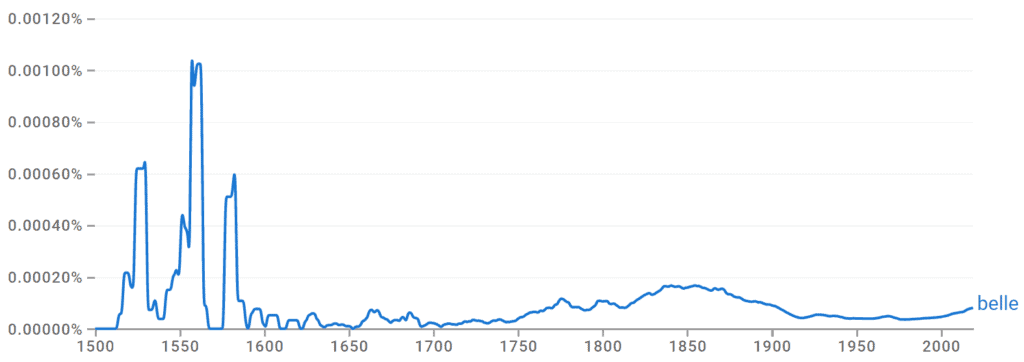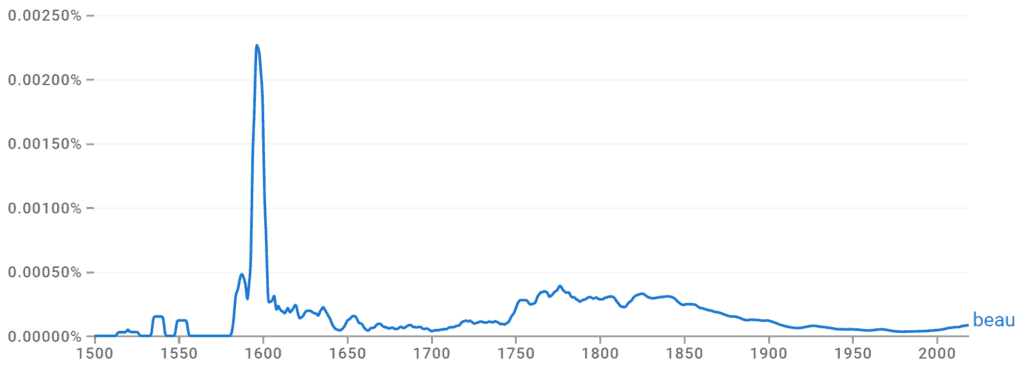The English language is largely derived from foreign etymological influences, but occasionally, a word or two stay true to their native language spelling and pronunciation. The words beau and belle are perfect examples of this, offering words that can be used as a formal name or title.
Let’s take a look at what these words mean in modern English vernacular and their French origins.
Belle and Beau: What’s the Difference?

Belle is the name given to a beautiful female who stands out in a crowd. Beau is the name given to a male who is considerably handsome or beautiful in a masculine manner.
Both words are French and are still used in their original sense — although beau has also taken on the additional English definition to mean a boyfriend, male companion, or admirer.
Meaning of Belle and Origins

Belle is a name that came into use as a surname in the 12th century within the Gascogne region of France, located along the southwestern border near Spain. At the time, it contained multiple spellings, including Lebel, Le Bell, Baile, and Bell, to name only a few.
It is derived from la belle, meaning “the beautiful,” from Old French bel, meaning” beautiful, handsome, or fair.” The use of bel dates to the 11th century and has an even older Latin influence.
By the 1620s, the word belle had taken on the additional description of “a well-dressed and beautiful woman, or a reigning beauty.”
Today, the word is used as a noun or adjective to describe a beautiful woman or one who stands out from the crowd. It is also a popular first name.
For example:
- She was the absolute belle of the ball, and her dance card was full before the first waltz played.
Meaning of Beau and Etymology

Beau is the masculine word for beautiful from the Old French bel, meaning” beautiful, handsome, or fair.”
The word became a surname within the 1300s along the west coast of France. It is believed the name was given to families that were particularly appealing to the eye. One of the earliest records is of Sir Nicolas Beau, the Lord of Sainte-Gemme and Bourgneuf, in 1309.
The term beau garçon, meaning “pretty boy,” was popular in the 1660s and was shortened to beau in the 1680s to mean a man who is “excessive in their dress or etiquette” and who was considered a fop or dandy (a man who placed more importance upon his appearance than other things).
In the 1720s, beau once again took on a more dignified use true to its origins and was used to describe an attendant suiter of a lady. Today, the term is still used in this manner, as well as to highlight particular good looks of the male sex. Beau is also a popular first name.
For example:
- The girls hid their expressions behind their hands as she walked into the party with her new beau.
Let’s Review
Both French in origin, beau and belle are two words used to describe physical beauty in both a man and woman, respectively. Today, “beau” is more acceptably used to describe a boyfriend or suiter, while “belle” highlights a particularly beautiful woman.
